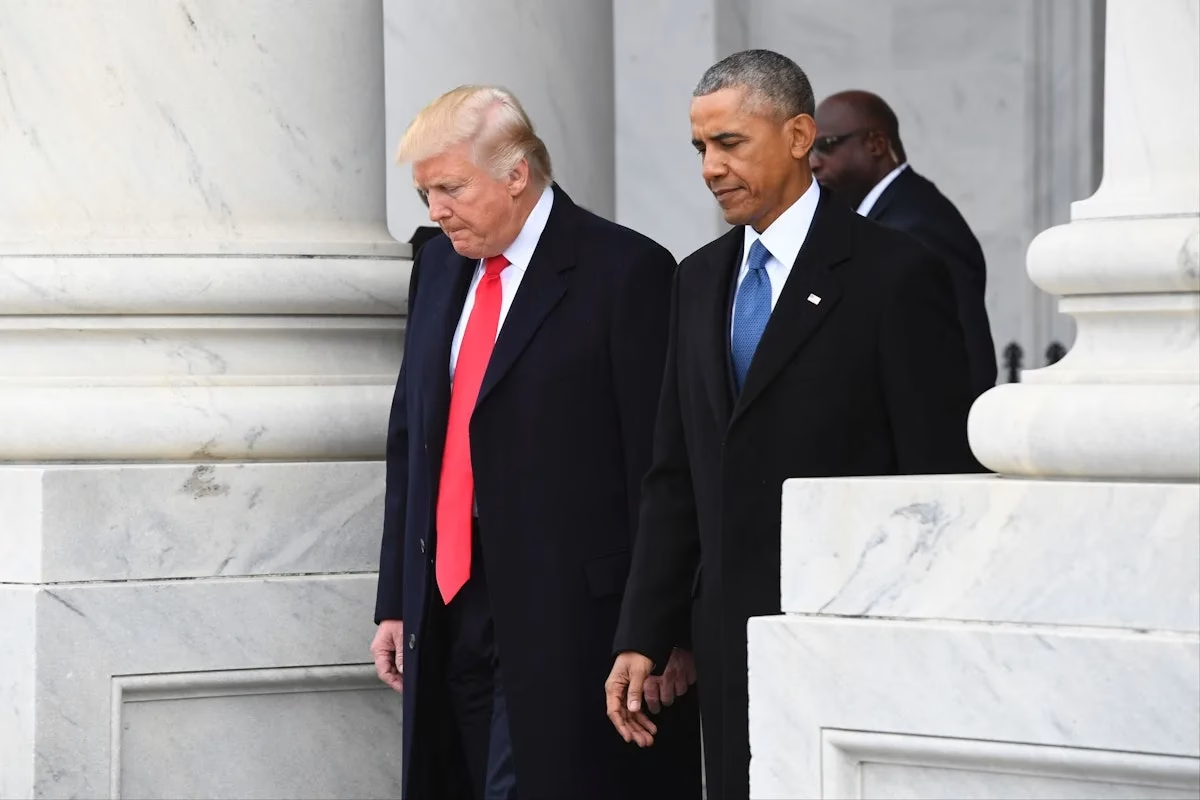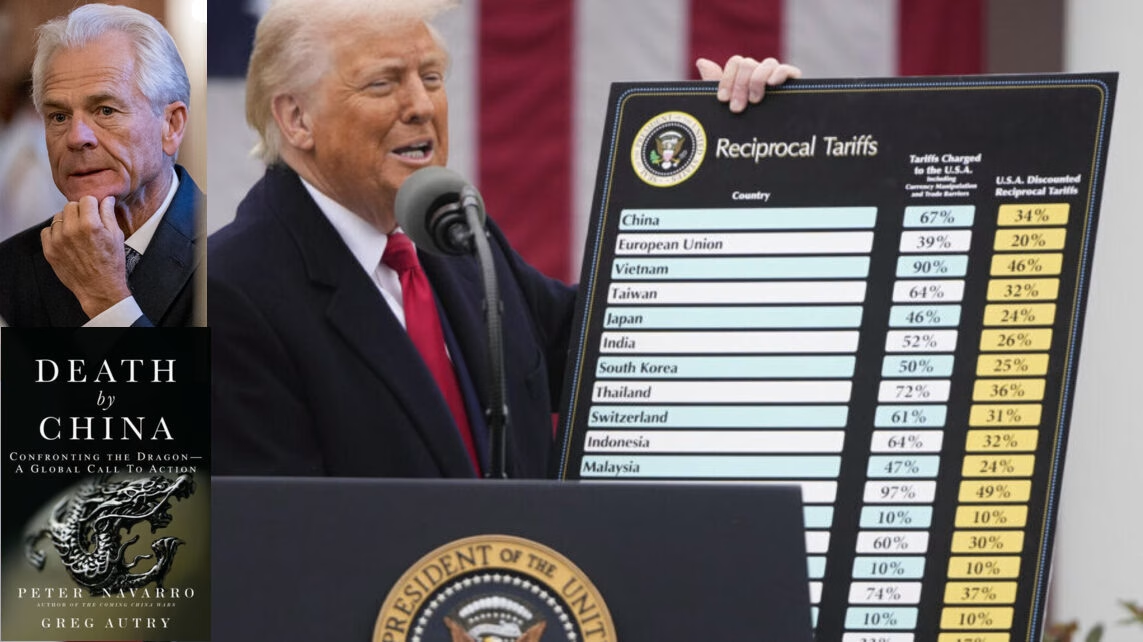By Don Terry | Wednesday, July 23, 2025 | 5 min read
In a political atmosphere already charged with suspicion, scandal, and spin, former President Donald Trump once again reignited a familiar fire. On July 22, 2025, from within the hallowed walls of the Oval Office, Trump declared that former President Barack Obama had led a “treasonous conspiracy” to rig not just the 2016 election—but the 2020 election as well. “He’s guilty… This was treason,” Trump stated with the kind of finality that usually accompanies a conviction, not a mere accusation. Yet, notably absent from this grave charge was any evidence to support it.
The allegation, fiery as it was, didn’t arise from nowhere. Trump’s claim was grounded in a controversial report delivered by his current Director of National Intelligence, Tulsi Gabbard. In the document, Gabbard alleged that Obama-era officials deliberately suppressed intelligence findings that indicated Russia had not interfered with election infrastructure in 2016. In her words, the suppression amounted to a “treasonous conspiracy,” and she formally referred the matter to the Department of Justice. The timing of this release—coinciding with Trump’s latest wave of public scrutiny over his links to Jeffrey Epstein—did not go unnoticed.
Obama, a figure who has long preferred to stay above the political fray since leaving office, responded through his spokesperson, Patrick Rodenbush. The rebuttal was swift and unusually pointed. Rodenbush dismissed Trump’s claims as “outrageous,” “bizarre,” and, most tellingly, “a weak attempt at distraction.” He emphasized that the former president wouldn’t normally respond to such theatrics, but given the gravity of the accusation—treason—it warranted a clear and public rejection.
Importantly, Rodenbush pointed to well-documented, bipartisan findings that directly contradicted the narrative Gabbard and Trump were pushing. Among them was a 2020 report by the Senate Intelligence Committee, chaired by Republican Senator Marco Rubio. That investigation affirmed that while Russian operatives did not alter actual votes or voting infrastructure, they did aggressively target the 2016 election through cyberattacks, disinformation campaigns, and the strategic leaking of sensitive emails. The Obama administration, for its part, had never claimed Russia changed vote totals—only that it influenced the election’s informational landscape. It was a key distinction, and one that Gabbard’s report appeared to blur or ignore altogether.
Gabbard’s report cited a declassified 2016 intelligence memo stating that Russia had “not impacted election results.” That memo, though, was never concealed, and it aligned with what the Obama administration consistently said: influence and interference came through information warfare, not ballot box manipulation. Critics from both sides of the aisle were quick to label Gabbard’s interpretation as “wildly misleading,” calling the entire report an attempt to “rewrite history” in a way that favored Trump’s persistent grievances.
And persistent they are. This isn’t the first time Trump has accused Obama of treason. He first floated the idea back in 2019 during the height of the Russia investigation and impeachment proceedings. The charge resurfaced again during the 2020 campaign and now, notably, just as Trump finds himself back in a familiar corner—this time over demands for the release of Jeffrey Epstein-related documents. Critics argue that Trump is leaning once again into the playbook that has served him well with his base: create a villain, resurrect an old grievance, and dominate the news cycle.
The political motivations seem clear to many observers. Trump’s past ties to Epstein, including social appearances and known acquaintances, have drawn renewed scrutiny as more information about the disgraced financier’s network comes to light. Meanwhile, Trump’s MAGA-aligned followers have demanded transparency and accountability, particularly regarding the contents of sealed Epstein files. Faced with potential fallout, the reanimation of the Obama “treason” narrative serves as a convenient and familiar smokescreen.
But smokescreen or not, the weight of the accusation demands legal context. The U.S. Constitution defines treason very narrowly: only acts of levying war against the United States or aiding its enemies in wartime qualify. Political disputes, intelligence disagreements, or even alleged cover-ups—while perhaps serious—do not meet this threshold. Legal experts have been almost unanimous in their assessment, labeling the charge as “nonsense” from a constitutional standpoint. Additionally, even if there had been any relevant infraction, the statute of limitations on any such hypothetical charge would have long expired by now.
In the end, the accusation may say less about Barack Obama and more about Donald Trump himself. For a politician known for shaping reality through repetition and volume, invoking Obama in moments of personal political peril has become almost ritual. It plays well to a loyal base, grabs headlines, and shifts the national conversation—at least temporarily. But it also raises deeper questions about the boundaries of political rhetoric, the weaponization of national security narratives, and the long-term consequences of blurring fact with assertion.
Obama’s team, while clearly frustrated, seemed keen to underscore that this is not just a personal attack—it’s a dangerous precedent. If accusations of treason can be flung so casually at former presidents without evidence, it erodes public trust in democratic institutions and undermines the very concept of accountability. It turns national security into a partisan tool rather than a collective safeguard.
As the dust settles—if it ever really does—one thing becomes clear: the American political arena is increasingly defined not just by policy disputes, but by battles over truth itself. In that fight, facts are often no match for fervor. But for those still invested in a reality anchored by evidence, Obama’s restrained but firm response stands as a quiet act of resistance against a tide of political theatre. Whether it cuts through the noise is another matter entirely.
See What the Algorithms Think — Live Search Engine Ranking Insights
Yahoo and Google are now ranking Mein Kampf & Trump: A Dangerous Resemblance among trending political books and articles. What’s fueling the attention? Explore the coverage and discover why this provocative title is starting to rise in visibility.
- Yahoo Ranking: https://bit.ly/4lmhSCz
- Google Ranking: https://bit.ly/44LFppG
Copyright 2025 FN, NewsRoom.






